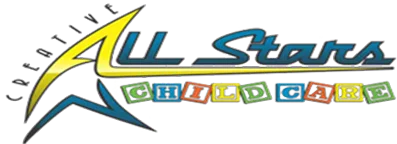Early childhood education plays a vital role in laying the foundation for a child’s lifelong learning, development, and well-being. Around the world, different governments have established early learning frameworks to guide educators, caregivers, and policymakers in shaping quality learning experiences for young children.
In this article, we compare two influential early learning frameworks: British Columbia’s Early Learning Framework (BC ELF) and England’s Early Years Foundation Stage (EYFS). While both share common goals around holistic development, they differ significantly in structure, philosophy, and implementation.
1. Overview of BC’s Early Learning Framework
The BC Early Learning Framework is designed to guide and support early childhood educators, families, and communities in fostering the development of children from birth to age 8. First introduced in 2008 and updated in 2019, the framework reflects contemporary research, Indigenous perspectives, and a commitment to inclusive, reflective, and responsive practices.
Key Goals:
- Respect diversity and equity in early childhood settings
- Support children’s critical thinking, curiosity, and creativity
- Foster caring and collaborative communities
- Encourage holistic development across physical, emotional, social, and intellectual domains
2. Overview of EYFS (Early Years Foundation Stage)
The EYFS is England’s statutory framework for the learning, development, and care of children from birth to age 5. Introduced in 2008 and revised multiple times since, most recently in 2021, the EYFS is legally binding for all early years providers in England, including nurseries, preschools, and childminders.
Key Goals:
- Promote school readiness
- Ensure children’s safety and welfare
- Provide high standards of teaching and learning
- Offer equal opportunities for all children
3. Philosophical Foundation: Play vs Outcomes
BC ELF:
- Emphasises learning through play, inquiry, and relationship.
- Children are viewed as capable and full of potential, rather than passive recipients of information.
- The framework encourages co-constructed learning, where adults and children explore ideas together.
- It embraces a pedagogical narration approach, where educators observe, document, and reflect on children’s experiences as part of the learning process.
EYFS:
- Promotes school readiness with a strong focus on developmental milestones and outcomes.
- While play is recognised as essential, the framework is more structured, with expectations for children’s progress across specific learning areas.
- There is a focus on early literacy and numeracy skills to prepare children for primary school.
- Assessments are used to track children’s progress and identify any developmental delays.
Verdict: BC ELF leans toward a progressive, child-led approach grounded in play and relationships. EYFS follows a more structured, outcome-based philosophy emphasising measurable progress.
4. Age Range Covered
BC ELF:
- Covers children from birth to age 8, including preschool and early primary years.
- Supports seamless transitions between early childhood settings and elementary school.
EYFS:
- Applies to children from birth to age 5.
- Ends at the beginning of Year 1 (first year of primary school in England).
Verdict: BC ELF spans a broader age range, recognising early learning as a continuum that extends into the early school years. EYFS stops at formal schooling entry.
5. Areas of Learning and Development
BC ELF:
The BC Early Learning Framework is non-prescriptive. Instead of listing fixed subjects or domains, it identifies areas of learning through the lens of four key principles:
- Well-being and belonging
- Engagement with others, materials, and the world
- Communication and literacies
- Identities, social responsibility, and diversity
These principles encourage open-ended, context-rich learning environments tailored to children’s interests and cultural backgrounds.
EYFS:
EYFS outlines seven areas of learning — three prime and four specific:
Prime Areas:
- Communication and language
- Physical development
- Personal, social, and emotional development
Specific Areas:
- Literacy
- Mathematics
- Understanding the world
- Expressive arts and design
These areas form the basis of curriculum planning and child assessments.
Verdict: EYFS provides structured learning goals, whereas BC ELF offers flexible and emergent learning pathways, encouraging educators to design learning around the child rather than set domains.
6. Assessment and Documentation
BC ELF:
- There are no mandatory standardised assessments.
- Encourages pedagogical narration: observing, documenting, and reflecting on children’s learning journeys.
- Emphasis is placed on learning stories — written narratives supported by photos or videos that make children’s thinking visible.
- Valued as a collaborative tool involving families and communities in the learning process.
EYFS:
- Requires ongoing formative assessments to monitor progress across the seven learning areas.
- Providers must complete a Progress Check at Age 2 and an Early Years Foundation Stage Profile (EYFSP) at the end of the Reception year (age 5).
- These assessments help ensure children meet expected development benchmarks and identify any special educational needs (SEN).
Verdict: EYFS uses standardised assessments for accountability, whereas BC ELF values narrative documentation and reflection, aligning with a more holistic view of learning.
7. Cultural and Indigenous Perspectives
BC ELF:
- Grounded in principles of reconciliation and decolonisation, integrating Indigenous worldviews and the First Peoples Principles of Learning.
- Encourages educators to reflect on their role in upholding Indigenous rights, languages, and histories.
- Values diverse cultural expressions and promotes equity across all settings.
EYFS:
- Emphasises inclusion and equal opportunity, particularly in relation to children with disabilities and those from disadvantaged backgrounds.
- Cultural diversity is acknowledged, but Indigenous frameworks are not inherently embedded, as England has a different sociopolitical history.
Verdict: BC ELF provides a robust foundation for cultural humility and Indigenous inclusion, while EYFS prioritises equality and diversity within a more generalised structure.
8. Educator’s Role and Professionalism
BC ELF:
- Educators are viewed as researchers, co-learners, and collaborators.
- Encouraged to critically reflect on their practice, biases, and relationships with children and families.
- Professional development is seen as an ongoing reflective journey, supported by pedagogical leadership and community inquiry.
EYFS:
- Educators are responsible for delivering a statutory curriculum with defined outcomes.
- Regular inspections by Ofsted (the Office for Standards in Education) evaluate the quality of provision.
- There is strong emphasis on qualifications and compliance, with clear guidance around staff-to-child ratios and professional expectations.
Verdict: BC ELF values reflective and relational professionalism, while EYFS focuses on accountability, compliance, and measurable standards.
9. Family and Community Involvement
BC ELF:
- Emphasises partnership with families as co-educators.
- Encourages deep engagement with local communities and learning environments.
- Learning is not confined to the classroom but extends to neighbourhoods, natural spaces, and cultural settings.
EYFS:
- Requires providers to involve parents in learning, especially in relation to assessments and school readiness.
- Communication is structured around updates, feedback forms, and parent-teacher meetings.
- Community involvement is encouraged but often less embedded in the learning framework itself.
Verdict: BC ELF takes a community-driven, place-based approach to learning, whereas EYFS focuses on home-centred involvement with structured parent engagement.
10. Flexibility and Implementation
BC ELF:
- Non-mandatory for independent preschools, although widely adopted across BC.
- Designed to be interpreted and adapted by educators based on local context, culture, and child needs.
- Offers rich inspiration for curriculum design without strict timelines or content rules.
EYFS:
- Statutory and regulated, especially in public early years settings.
- Schools and providers must follow the curriculum and maintain evidence for inspections.
- Offers less flexibility, although there is room for creativity within the defined framework.
Verdict: BC ELF offers greater flexibility and educator autonomy, whereas EYFS enforces standardised implementation across settings.
Conclusion
While BC’s Early Learning Framework and England’s EYFS both strive to support high-quality early childhood education, they reflect different educational philosophies, societal values, and implementation strategies.
| Feature | BC Early Learning Framework | EYFS (England) |
| Philosophy | Child-led, play-based, relational | Structured, outcome-based |
| Age Range | Birth to 8 | Birth to 5 |
| Learning Areas | 4 holistic principles | 7 defined areas |
| Assessment | Narrative documentation | Standardised assessments |
| Cultural Focus | Strong Indigenous & cultural inclusion | General inclusion and diversity |
| Educator Role | Co-learner and reflective practitioner | Curriculum deliverer and assessor |
| Flexibility | High – context-based implementation | Low – statutory compliance |
Ultimately, both frameworks have strengths and serve their respective contexts well. BC ELF is ideal for educators seeking an open-ended, culturally responsive approach, while EYFS suits settings where structure, consistency, and measurable outcomes are a priority.
For parents in British Columbia, particularly those in Surrey, choosing an early childhood centre that understands and implements the values of the BC ELF can make a meaningful difference in their child’s growth and learning experience.
That’s why Creative All Stars Childcare is a trusted name among families in Surrey. Their programs are thoughtfully designed around the principles of the BC Early Learning Framework, encouraging curiosity, cultural understanding, and joyful learning through play. With a commitment to inclusive practice, family partnerships, and community engagement, Creative All Stars offers a nurturing foundation that aligns beautifully with BC’s progressive vision for early childhood education.
If you’re searching for a preschool that honours your child’s individuality while fostering lifelong learning skills, Creative All Stars Childcare is a standout choice in the heart of Surrey.

